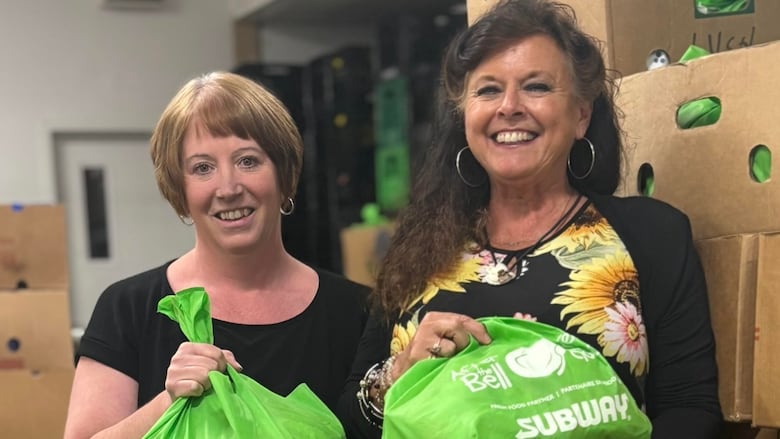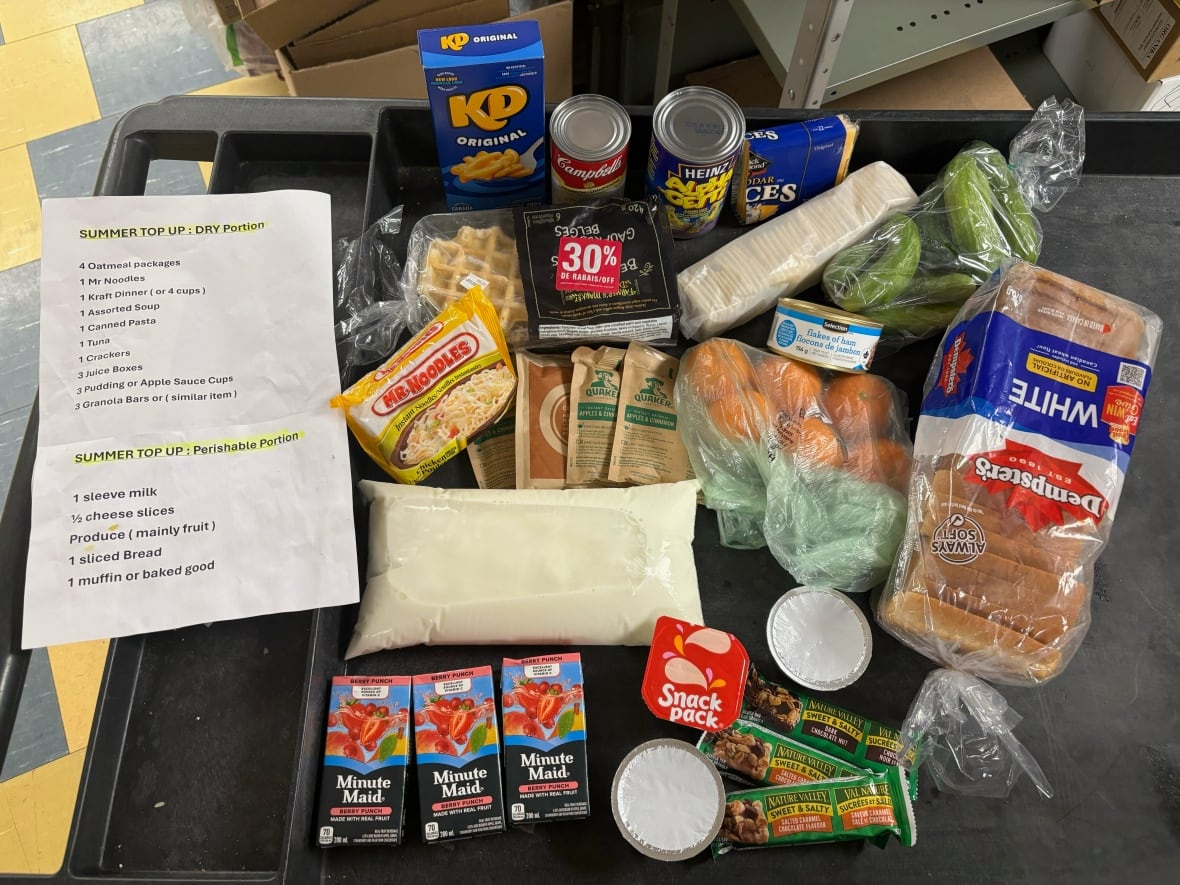Small town food banks struggle to keep up as demand hits new highs
People who were once donors are now coming for help themselves, says food bank

Food banks in smaller communities across southwestern Ontario are doing their best to keep everyone fed, but it's becoming more of a struggle than ever as demands soars and donations dwindle.
In Ingersoll, workers at the Salvation Army food bank are seeing plenty of new faces coming in for help each week, said coordinator Lovish Sharma, including people who used to bring in regular donation themselves.
For many in the Oxford County town, with a population around 13,000, this year has been especially difficult. One of the town's major employers is the General Motors CAMI assembly plant and recent job losses there are playing a big role in increased use at the food bank, said Sharma.
"I know a lot of people who have been laid off, and a lot of people who were laid off in the past and they have not been able to find a new job," he said. "I think that's one of the major reasons why we're seeing an increase in demand."

In nearby St. Thomas, the local food bank is seeing similar trends.
"We're rising every year, but this year has been really tough for a lot of families," said Karen McDade, a manager at the St. Thomas Elgin Food Bank.
"Due to the cost of everything, be it food, gas, utilities, mortgage rates, or rentals, everything is just a bit overwhelming for families," McDade said.
While need is rising steadily, this summer they are seeing an unprecedented increase in usage with new sign-ups nearly every day — in addition to more than 1,500 new users in the last year and a half, said manager Sarah Coleman.
The Summer Top Up program, which provides breakfast, lunch and snacks to families while their children are out of school, had 56 new families sign up just in the past three weeks.

Donations are in decline, so keeping the shelves stocked can be tough, but the food bank is managing to keep up with demand for now.
In two weeks, they'll need to fill the next round of summer top-up packs which will require about 5,000 granola bars or other small snacks. For the first time ever, they may need to go out and purchase them, Coleman said.
Many of the people who would often donate are now having to budget with rising costs, McDade said, and that's being reflected in their donation bins at local grocery stores.
"We used to pick them up a few times a week, and now it's only once because they're just not overflowing like they used to," she said.
Call for government action
Both McDade and Coleman want to see more government response to rising costs, they said.
With even basic staples like bread, milk and eggs becoming less affordable, some of the new people signing up at the food bank have jobs, a car and even own their own house, McDade said, yet still struggle to make ends meet and feed their families.
On Monday, she even helped two seniors above 80-years-old sign up for their first time, she said.
"When someone that's on a pension hasn't been to a food bank their whole life and they're coming here at 82 years old … it's upsetting."
"I think the government really needs to take a deep look� and offer more support," said Coleman.

